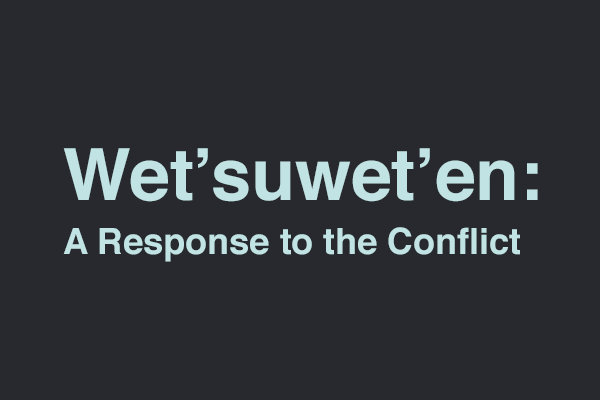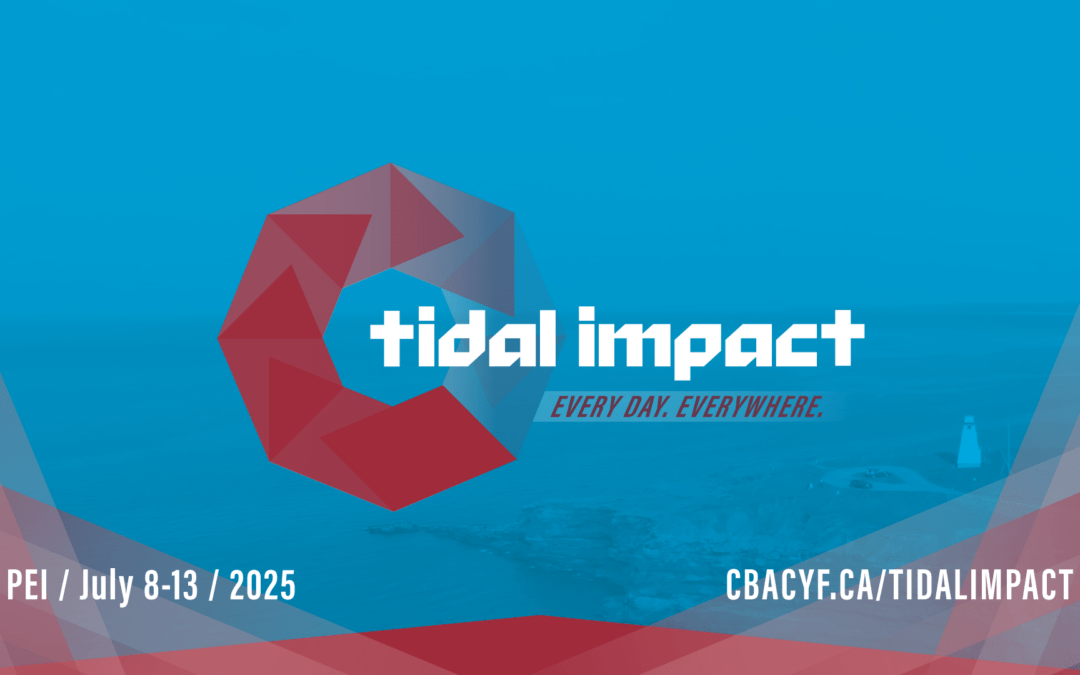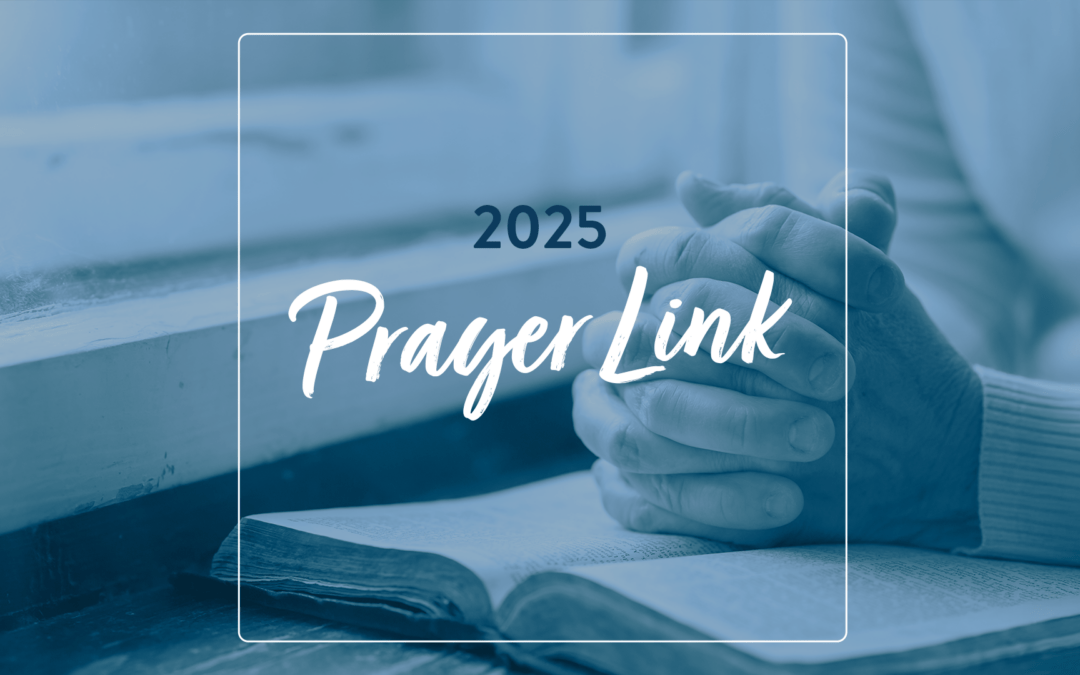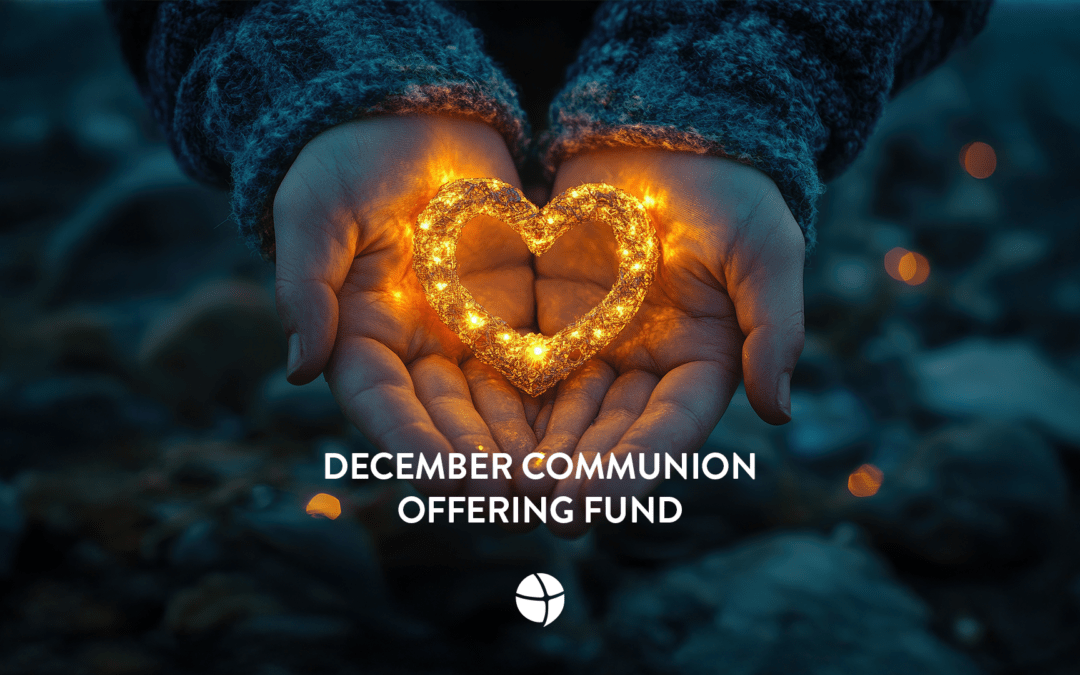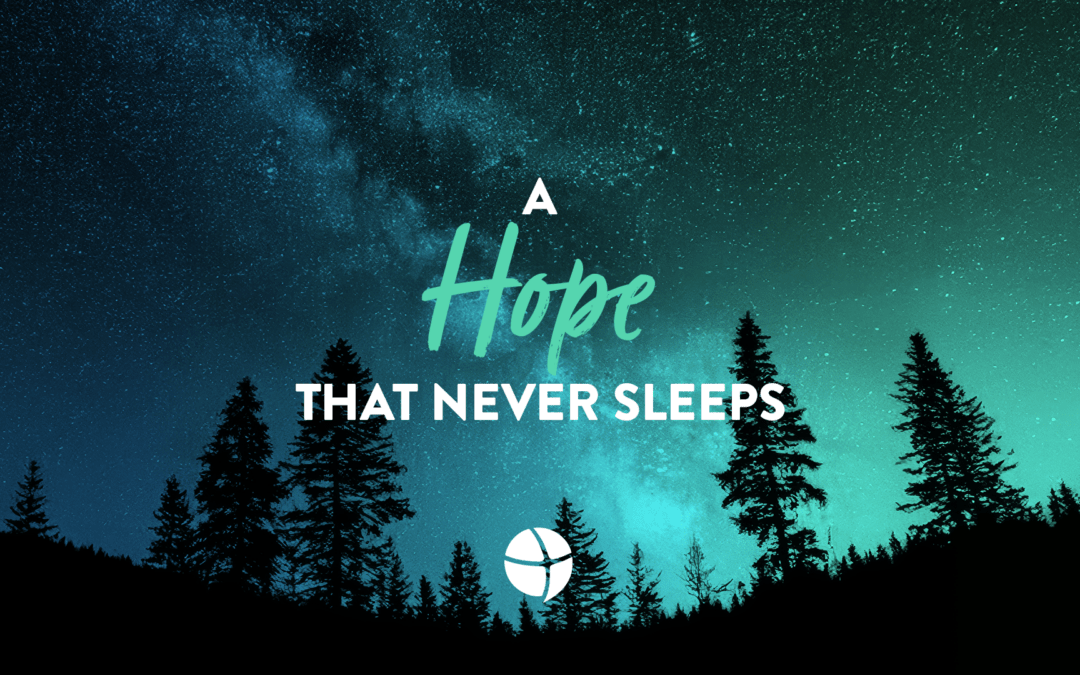For those of us on the East Coast, Wet’suwet’en (pronounced wet-SOO-ih-ten) might seem far away. Few of us are familiar with the Land in question, and even fewer know anyone belonging to the Wet’suwet’en nation. The repercussions of the conflict, however, are being felt everywhere. Rumours and news reports abound, and it seems that everyone has a different opinion.
Indigenous Relations Working Group
Canadian Baptists of Atlantic Canada
February 25th, 2020
Wet’suwet’en.
For those of us on the East Coast, Wet’suwet’en (pronounced wet-SOO-ih-ten) might seem far away. Few of us are familiar with the Land in question, and even fewer know anyone belonging to the Wet’suwet’en nation. The repercussions of the conflict, however, are being felt everywhere. Rumours and news reports abound, and it seems that everyone has a different opinion.
So what’s the deal? How should we, as followers of Jesus and as Canadian citizens, respond?
As always, we need to take an attitude of humility and a posture of learning, being “quick to listen, slow to speak, and slow to get angry” (Jas. 1:19). Especially when the issues are complex, when the history is long, it can be challenging to look past appearances to learn where we are now and how we got here. It’s much easier to react out of frustration, fear, or not knowing. And in the age of social media, it’s much easier to simply share a meme than it is to delve deeper into the situation.
In her 2009 TED talk, “The Danger of a Single Story,” Nigerian writer and activist Chimamanda Ngozi Adichie warns against oversimplifying the story of an entire people. She quotes the Palestinian poet Mourid Baraghouti, reflecting that “the easiest way to dispossess a people is to tell their story, and to start with ‘secondly’.” One way this story might be told is this:
Secondly, Wet’suwet’en leaders are not in agreement, with many in favour of the pipeline and a few “trouble-makers” strongly opposed to it despite the pipeline’s economic benefit.
Secondly, the company in charge of the pipeline has already done the required consultations.
Secondly, blockades and protests have been set up across Canada by Indigenous activists and settler allies, bringing the railway and the economy to a halt.
Secondly, the Wet’suwet’en and their allies are not co-operating with the RCMP and OPP, who are simply enforcing Canadian and provincial law.
It would be easy to come to these conclusions after a superficial survey of the day’s news. But these “secondlys” reflect a skewed perspective, with little understanding of historical and present-day context. In other words, they are a single story. And if this is the single story we as settler Canadians tell ourselves about Indigenous peoples, then our hopes for real reconciliation may well be dead, as some are already declaring. To gain a full understanding of where we are and how we got here, we must humbly listen to what has come before. The same story could be told from quite a different point of view, one that takes into account Indigenous experiences since contact with Europeans.
Firstly, the Doctrine of Discovery (1493) stated that European explorers had the right to claim unoccupied territories for their sovereign. Despite the fact that the Land we now identify as Canada was well-populated by many nations, Indigenous peoples were classified by Europeans as non-human because they were not Christian. In this way, the European nations justified the violent colonization of whole continents through Christian doctrine.
Firstly, the Indian Act (1876) overlaid traditional Indigenous governance with a colonial government—the band office system—operating under completely different rules and stripping Indigenous peoples of any authority or autonomy. Where the former system was based on consensus and collective ownership, the latter was centred on “majority rules” and the principle of terra nullius. Despite having been outlawed for most of Canada’s history, traditional governance has survived in many First Nations, including the Wet’suwet’en, continuing to operate alongside the colonial system; however, industry and the Government of Canada have often pitted traditional leaders against band leaders for their own advantage.
Firstly, John A. MacDonald tasked the North-West Mounted Police with clearing the Land for the trans-national railway; this included forcibly removing Indigenous communities along the way. First, Louis Riel was hung for treason, despite his best attempts at diplomacy. And firstly, Neil Stonechild, Pamela George, Dudley George, and Colten Boushie lost their lives unnecessarily and unjustly. As a result, many Indigenous peoples feel a deep sense of mistrust towards the police, questioning whether they will be provided the same level of protection as non-Indigenous Canadians.
Firstly, at least 1200 Indigenous women and girls (and possibly as many as 4000) went missing or were murdered between 1980 and 2012, many of them in the same area of British Columbia where a 400-person “man camp” is to be built ahead of the proposed pipeline. (The National Inquiry into Murdered and Missing Indigenous Women and Girls, Articles 13.1-13.5, lays out guidelines for extractive industries which have yet to be followed.)
Firstly, thousands of Indigenous children were legally taken from their parents by the Government of Canada during the Indian Residential Schools era and during the Sixties Scoop. Firstly, documents suggest that in recent years Canada has spent almost 10 million dollars fighting the human rights tribunal ruling that they must provide equal funding for on-reserve child welfare. And firstly, despite the federal government’s promises, dozens of reserves remain under long-term boil-water advisories, including various communities in southern urban areas. While these may appear to be tangential to the situation in question, they all give context and help to explain where people are coming from.
Firstly, the Wet’suwet’en depend on the Land for their physical, emotional, and spiritual well-being. First, they have a presence in the area going back countless generations, caring for it and receiving the many good things it has to offer them. Firstly, their very name and their stories speak to the ways in which they belong to that particular place. Their right to be there predates Canadian law and has been recognized in the landmark Delgamuukw decision of 1997.
Firstly, despite all that has happened since colonization, Indigenous peoples have resisted both annihilation and assimilation, maintaining their identities with remarkable creativity, strength, and courage.
As these two stories continue to collide and as the stand-offs between various groups intensify, how ought we to represent Christ in our own communities and neighbourhoods when it comes to implementing the Resolution we adopted at our Assembly last summer?
While the geography and the details may be different, the questions being asked in Wet’suwet’en are also being asked here: What, exactly, is an acceptable form of protest for Indigenous peoples? How can we make sure that the abundant natural resources available here are maintained so that everyone can live well, both today and seven generations in the future? What does free, prior, and informed consent look like, especially given the high levels of poverty in many Indigenous communities? How can we ensure a respectful nation-to-nation relationship between Canada and Indigenous nations occupying the same space? When Canadian law and Indigenous law collide, as they have in the case of the blockades, whose rule of law takes precedence? Is reconciliation even possible? If so, what will it look like and where will it lead? How can would-be allies most effectively show their support? And the list goes on.
Throughout the Atlantic Provinces—in Wolastakuk, in Peskotomakahti territory, in Mi’kma’ki, and in Innu/Inuit/Southern Inuit territory—these questions are being addressed in court cases and other disputes. For just a few examples, consider the controversy over the Sisson Brook mine, the ongoing debate over industrial forestry practices in New Brunswick, the recent court decision at Pictou Landing/Boat Harbour, conflict over fishing rights in the Bay of Fundy and the Northumberland Strait, and the concern about the Muskrat Falls hydroelectric dam. If the present conflict in Wet’suwet’en is far away, these cases are in our own backyard and deserve our careful attention. We must be careful of the temptation to tell a “single story”.
We, too, have our own long history of ongoing colonization and racism, and it is not at all clear how things will evolve. What is clear is that we, as the collective membership of the CBAC, have pledged to uphold the principles of the United Nations Declaration on the Rights of Indigenous Peoples (UNDRIP) as the minimum standard for right relationship. As citizens of Canada, we have the responsibility to call our elected government to the same standard; otherwise, we are complicit in their decisions.
James has some solid advice for us when it comes to such difficult issues:
Do you want to be counted wise, to build a reputation for wisdom? Here’s what you do: Live well, live wisely, live humbly. It’s the way you live, not the way you talk, that counts. Mean-spirited ambition isn’t wisdom. Boasting that you are wise isn’t wisdom. Twisting the truth to make yourselves sound wise isn’t wisdom. It’s the furthest thing from wisdom—it’s animal cunning, devilish conniving. Whenever you’re trying to look better than others or get the better of others, things fall apart and everyone ends up at the others’ throats. Real wisdom, God’s wisdom, begins with a holy life and is characterized by getting along with others. It is gentle and reasonable, overflowing with mercy and blessings, not hot one day and cold the next, not two-faced. You can develop a healthy, robust community that lives right with God and enjoy its results only if you do the hard work of getting along with each other, treating each other with dignity and honor. (James 3:13-18, MSG)
Regardless of our personal or political opinions on pipelines and blockades, once we have considered all sides, the wisdom described by James is the kind of wisdom needed by all those involved—Canada’s politicians, Indigenous leaders, activists, members of the RCMP, industry representatives, and also for ourselves.
May it be so.
For those interested in learning more, CBAC’s Indigenous Relations Working Group offers the following resources:
Wet’suwet’en & Crown Conflict: Resources for Understanding is a collection of short articles and other resources compiled by Steve Heinrichs (Mennonite Church Canada). While it is not at all comprehensive, the articles are diverse, providing a good place for churches and individuals to start learning about the present conflict.
The KAIROS Blanket Exercise is an interactive history lesson created in collaboration with Indigenous Elders, knowledge keepers, and educators. You can bring the Blanket Exercise to your neighbourhood by contacting KAIROS directly.
Walking in a Good Way with Indigenous Neighbours is a 20-hour online course created by the Working Group. It is designed for Canadian Baptists to help them learn from Indigenous voices and begin to walk as good neighbours and treaty people.

